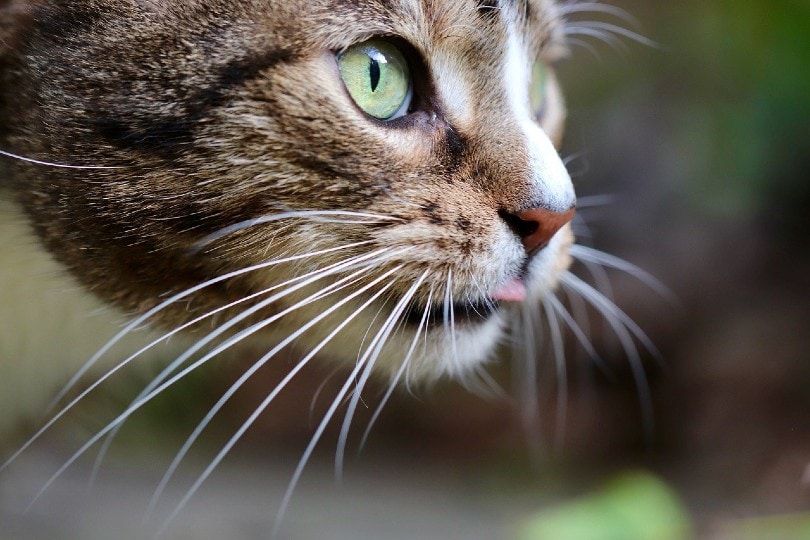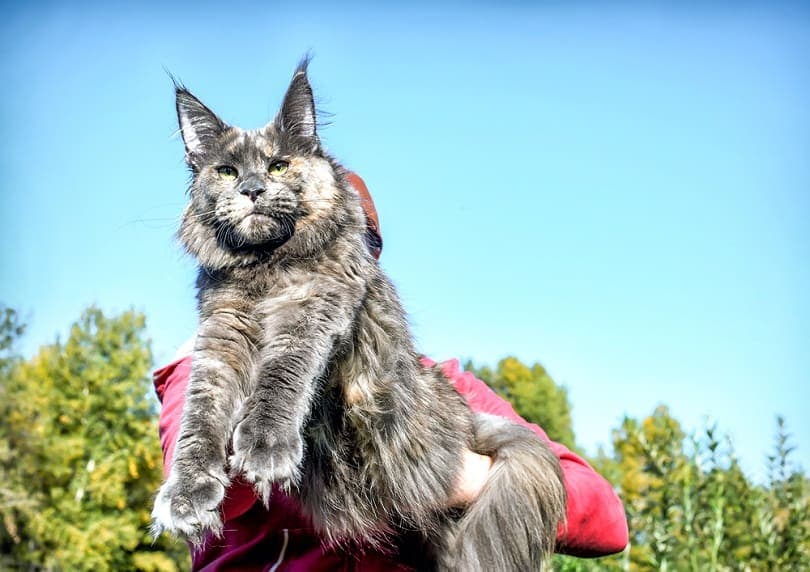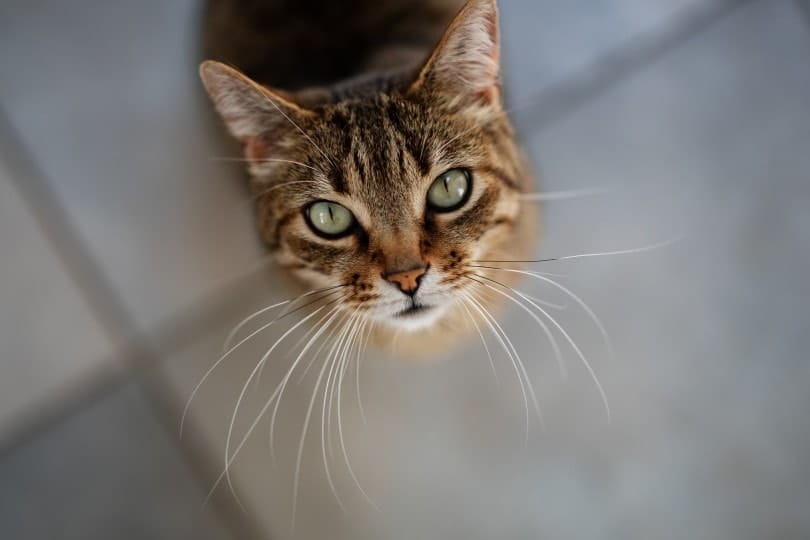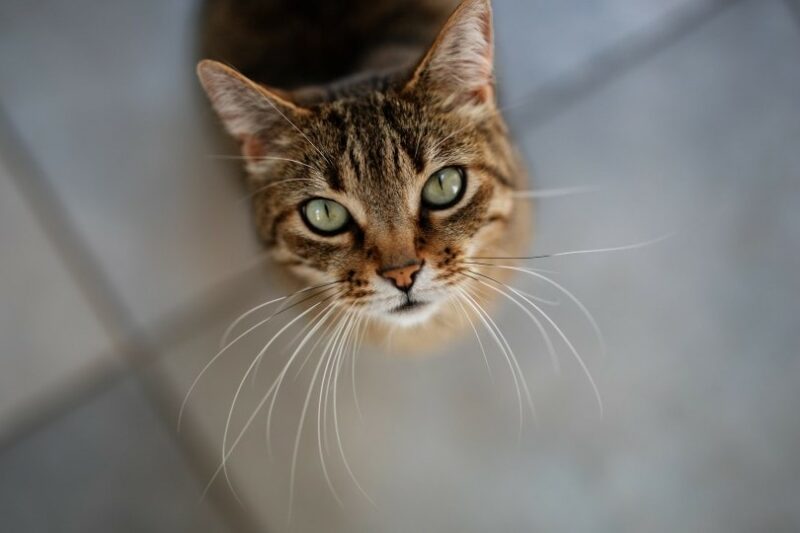The record holder for the longest whisker on a cat belongs to Missi, a Maine Coon in Finland with an incredible 7.5-inch whisker. Her whiskers were measured back in 2005 in Iisvesi, Finland.
Learn more about this incredible cat and some other notable feline record holders.
Missi the Maine Coon
Fullmoon’s Miss American Pie, also known as “Missi” by her owner Kaija Kyllonen, is the current Guinness Book of World Records holder for the title of “longest whisker” 1. Her whiskers were measured in Finland in 2005, revealing a length of 7.5 inches, which is longer than a standard pencil.
Generally, cat whiskers are proportional to the width of the body. They may be longer or shorter but having such long whiskers as Missi is unusual—hence her fame.

Britain’s Longest Whiskers
Missi may have the world title, but a precious formerly homeless cat was thought to have Britain’s longest whiskers. Named for her most dominant feature, Whiskers was a homeless cat that was under the care of Cats Protection charity at 2 years old 2.
With whiskers that span 12 inches, she’s thought to be the cat with the longest whiskers in Britain. Aside from being a probable record holder, her stark-white whiskers make her dainty look even prettier and stand out against her dark coat.
Other Cat Record Holders
Missi and Whiskers aren’t alone in being famous for their unique features. Here are some other record-holding cats:
World’s Biggest Cat
This title is a tricky one since it depends on the way the cat is measured. The world’s longest cats, measured from head to tail, are usually Maine Coons. The longest domestic cat record holder is Barivel, a Maine Coon in Italy that measures 3 feet and 11.2 inches.
The longest cat ever recorded in history is another Maine Coon by the name of Mymains Steward Gilligan, or Stewie, from Nevada. In 2010, he was 4 feet and 0.42 inches long.
Now for height, the title goes to Arcturus Aldebaran Powers from Michigan. He measures 1 foot and 7 inches from the floor to his shoulders.

World’s Smallest Cat
Taking it in the other direction, the world’s smallest cat in history was Tinker Toy, a male blue-point Himalayan Persian from Illinois. He was the runt of the litter and only measured 2,75 inches high to the shoulder and just 7.5 inches long—meaning Missi’s whiskers are the same length as the whole cat!
The current record holder for the smallest cat is Lilieput, a Munchkin cat in California that measures 5,25 inches in height.
World’s Richest Cat
One of the more unique titles, Blackie is the world’s richest cat after an incredible inheritance from his late owner. It’s not uncommon for people to leave their fortunes to their pets, though Blackie, the pet cat of reclusive British antique dealer Ben Rea, inherited £7 million when his owner died in 1988.
It’s likely that Blackie will be dethroned by Grumpy Cat, however. Tardar Sauce, the unique dwarf cat with an underbite from Arizona, became a viral sensation in the 2010s in memes, spawning books, merchandise, sponsorships, and a movie. The cat earned a lot of money throughout her lifetime, with her fortune estimated to be around $100 million.
Conclusion
There you have it! Missi is the current world record holder for her 7.5-inch whisker. She joins the ranks of other record-holding cats, such as Blackie, Barivel, Stewie, and Tinker Toy, in her fame.
Related Read:
Featured Image Credit: NON, Unsplash













